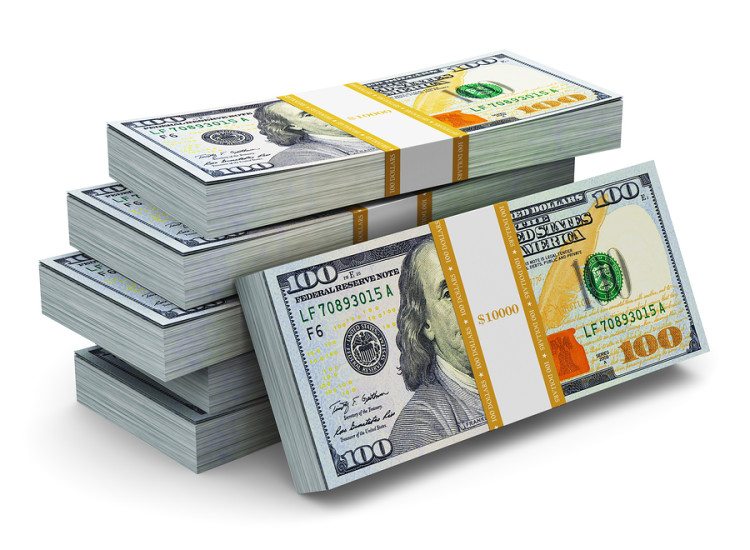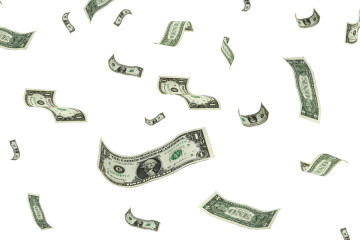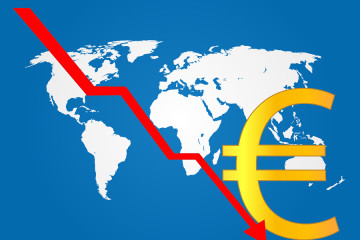Bloomberg Business: Dollar Rises on Fed’s Interest-Rate Outlook; Kiwi Advances

28 Jan 2015 21:21
Copyright 2015 Bloomberg.
Chikako Mogi and Kevin Buckland
(Bloomberg) — The dollar rose for first time in three days against the yen after the Federal Reserve became the only developed nation central bank considering raising interest rates this year.
The kiwi rallied after slumping the most in a week on Wednesday in New York trading as the Reserve Bank hinted it is prepared to lower interest rates. The Aussie was near its weakest since July 2009 as traders bet there’s a 50 percent chance the country’s central bank will cut rates on Feb. 3. A gauge of the U.S. currency headed for the highest close on record as the Federal Reserve maintained its pledge to be “patient” on the pace of future rate gains.
“All roads lead to a higher U.S. dollar,” said Joseph Capurso, a currency strategist at Commonwealth Bank of Australia in Sydney. “The Fed’s the only one that people can see tightening this year.”
The dollar rose 0.3 percent to 117.94 yen as of 12:19 p.m. in Tokyo. The greenback was little changed at $1.1282 against the euro. It reached $1.1098 on Jan. 26, the strongest since September 2003. The yen fell 0.3 percent against the euro at 133.06.
The Bloomberg Dollar Spot Index, a gauge of the currency’s performance against 10 major peers, rose 0.2 percent to 1,162.02, heading for the highest close in data going back to 2004.
Fed Outlook
Fed policy makers have kept their interest-rate target in a range of zero to 0.25 percent since December 2008. The chance of an increase to at least 0.5 percent by the Fed’s December meeting was 66 percent, futures data showed, from 86 percent at the end of 2014.
“While the Fed pointed out the risk of low inflation, I don’t think it changes the main scenario for a rate hike in mid-2015,” said Masato Yanagiya, head of foreign exchange and money trading at Sumitomo Mitsui Banking Corp. in New York. “With the U.S. headed for tighter monetary policy while other countries are increasing stimulus, the dollar will remain strong.”
The dollar has climbed 9 percent in the last three months, the most after the Swiss franc in a basket of 10 currencies tracked by Bloomberg Correlation-Weighted Indexes. The yen fell 0.3 percent, while the euro slid 3.9 percent.
New Zealand’s currency slid as much as 1.9 percent yesterday, before trading at 73.43 cents from 73.14, its lowest since March 2011. The Aussie added 0.1 percent to 78.96 U.S. cents after dropping as much as 0.7 percent in New York. On Jan. 26, it touched 78.55, the lowest since July 2009.
New Zealand’s two-year yield declined 10 basis points to 3.14 percent. A basis point is 0.01 percentage point. Australia’s 10-year bond yield fell to a record 2.474 percent before paring its decline to 2.51 percent. The nation’s three- year yield dropped below 2 percent for the first time since 2012.
–With assistance from Mika Otsuka in New York.
To contact the reporters on this story: Chikako Mogi in Tokyo at cmogi@bloomberg.net; Kevin Buckland in Tokyo at kbuckland1@bloomberg.net To contact the editors responsible for this story: Garfield Reynolds at greynolds1@bloomberg.net Tomoko Yamazaki, Nicholas Reynolds







No Comment